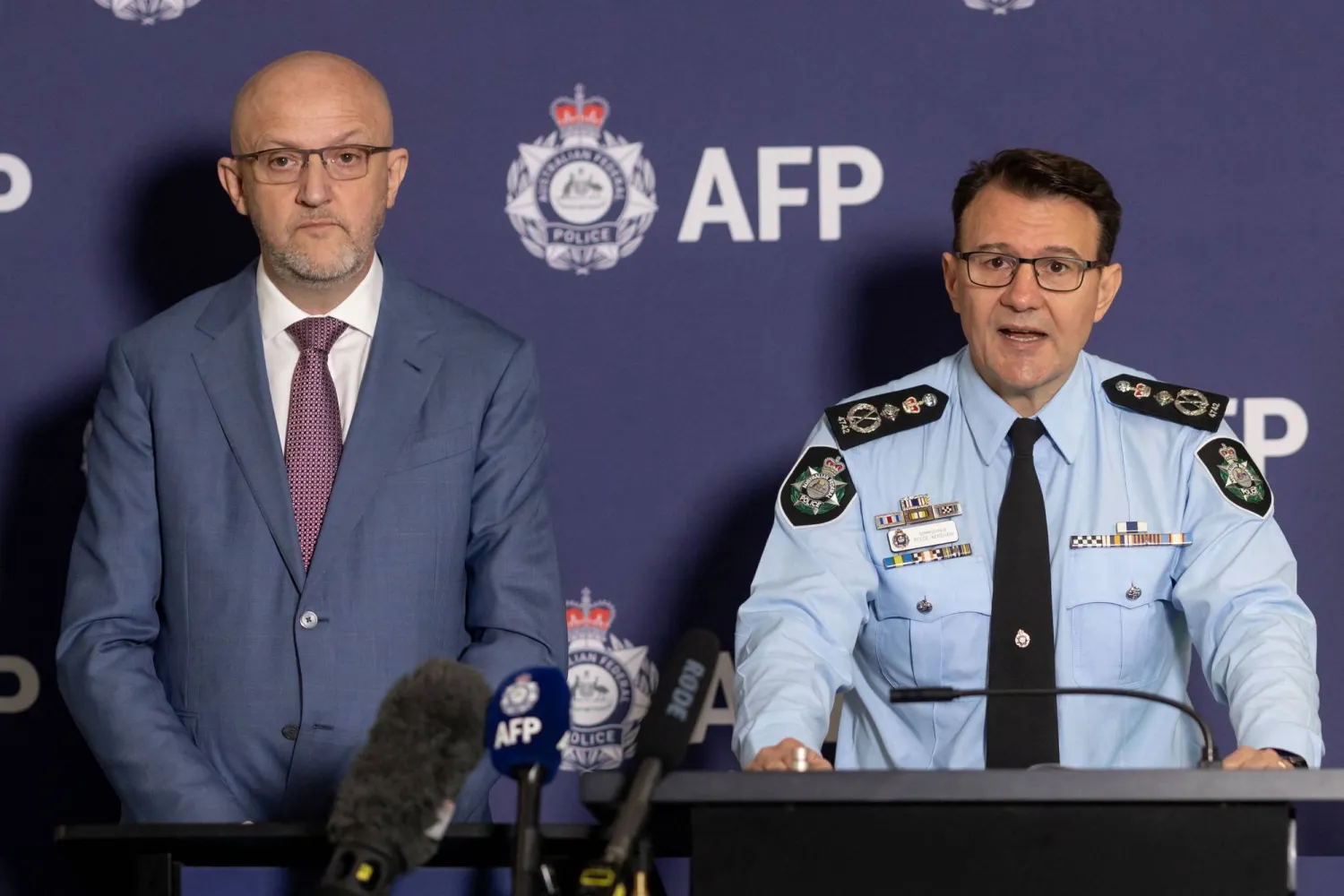Australia said on Friday it had arrested a Russian-born married couple on espionage charges, alleging the woman who was an information systems technician in the Australian Army sought to access defense material and send it to Russian officials.
The Australian Federal Police (AFP) said the couple, who hold Australian citizenship, worked to access material related to Australia's national security though no significant compromise had been identified yet.
"We allege they sought that information with the intention of providing it to Russian authorities," AFP Commissioner Reece Kershaw said during a media briefing.
"Whether that information was handed over remains a key focus of our investigation."
The AFP said the woman, 40, travelled to Russia and instructed her husband in Australia to log into her official account to access defense materials.
Prime Minister Anthony Albanese warned anyone considering acting against Australia's national security.
"People will be held to account who interfere with our national interests and that's precisely what these arrests represent," Albanese told reporters. He declined to comment directly on the case saying it was before the court.
Police arrested the suspects at their Brisbane home Thursday. Igor and Kira Korolev appeared in the magistrate's court, court filings showed, after being charged with one count each of preparing for an espionage offence, which carries a maximum penalty of 15 years in jail. The charges are the first under new laws introduced in 2018.
They did not apply for bail and were remanded in custody until Sept. 20 when they are next due to appear, media reported.
The couple has been living in Australia for more than 10 years, with the woman getting Australian citizenship in 2016 and her husband in 2020.
While the couple are the first suspected operatives to be charged under the modernized espionage laws that also outlaw covert foreign interference in domestic politics, Australian security forces have disrupted alleged Russian spies in recent years.
Australia had quietly expelled a large Russian spy ring comprising embassy and consular staff as well as other operatives using deep-cover identities, a spy agency official and media reported last year.
Russia last year accused Australia of “Russophobic hysteria” for canceling the lease on land where Moscow wanted to build its new embassy. The Australian government judged the site to be a security risk because it was too close to Parliament House.









